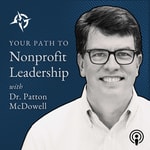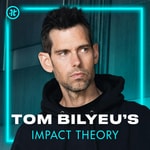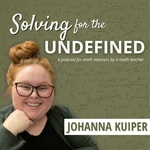Maths on the Move – Details, episodes & analysis
Podcast details
Technical and general information from the podcast's RSS feed.

Maths on the Move
plus.maths.org
Frequency: 1 episode/11d. Total Eps: 99

Recent rankings
Latest chart positions across Apple Podcasts and Spotify rankings.
Apple Podcasts
🇨🇦 Canada - mathematics
31/07/2025#50🇬🇧 Great Britain - mathematics
31/07/2025#12🇩🇪 Germany - mathematics
31/07/2025#24🇺🇸 USA - mathematics
31/07/2025#30🇫🇷 France - mathematics
31/07/2025#34🇨🇦 Canada - mathematics
30/07/2025#49🇬🇧 Great Britain - mathematics
30/07/2025#8🇩🇪 Germany - mathematics
30/07/2025#20🇺🇸 USA - mathematics
30/07/2025#28🇫🇷 France - mathematics
30/07/2025#33
Spotify
No recent rankings available
Shared links between episodes and podcasts
Links found in episode descriptions and other podcasts that share them.
See all- https://www.newton.ac.uk/
55 shares
- https://www.kcl.ac.uk/
29 shares
- https://plus.maths.org/content/ini
29 shares
RSS feed quality and score
Technical evaluation of the podcast's RSS feed quality and structure.
See allScore global : 58%
Publication history
Monthly episode publishing history over the past years.
The secret to a happy summer: Seville, causality and staircases!
Episode 80
mercredi 24 juillet 2024 • Duration 19:03
We're getting excited for the summer here but before we all head off on holidays we catch up with Marianne in Spain at the European Congress of Mathematics, and Justin and Rachel in the UK having just attended some fascinating events in London and Cambridge held by the Isaac Newton Institute of Mathematical Sciences and the Newton Gateway.
Marianne told us about her recent interview with Avi Widgerson – winner of the Abel Prize in 2021 and the most recent Turing Prize. Justin told us about how the philosophical concept of causality can help us understand AI. And Rachel tells us about the surprising phenomena of anti-diffusion and how it links the patterns we see on Juniper, staircases in our oceans and fusion reactors of the future.
We'll be back with more podcasts in the Autumn, but here are some of our recommendations for your summer reading and listening pleasure!
Articles:
Podcasts:
- Tying together black holes, quantum gravity and number theory
- The murmuration conjecture: finding new maths with AI
- From clicks to chords
Books:
This content was produced as part of our collaborations with the London Mathematical Society, the Isaac Newton Institute for Mathematical Sciences and the Newton Gateway to Mathematics.
On the mathematical frontline: Modelling behaviour
Episode 79
mardi 16 juillet 2024 • Duration 24:07
How we behave can have far greater impacts than just on our own daily lives. For example who we interact with and whether we get vaccinated affects how diseases spread through the community. So if we are going to use maths to try to understand such a challenge facing society, we need to make sure we include human behaviour in our mathematical models. But how do you mathematically describe the messiness of human behaviour?
To find out we talk to mathematicians Kirsty Bolton, Assistant Professor at the University of Nottingham, and Ed Hill, a Warwick Zeeman Lecturer at the University of Warwick. Kirsty and Ed organised a recent workshop bringing together experts from across maths, data science, life sciences and social sciences to explore how mathematical models can be made more realistic by including human behaviour. They tell us about both the mathematical and the communication challenges this brings, from the difficulty of learning the languages of other disciplines to the excitement of finding the sweet spot where experts from such different areas can work together to make progress.
Kirsty and Ed are both part of JUNIPER, a collaborative network of researchers from across the UK who work at the interface between mathematical modelling, infectious disease control and public health policy, and JUNIPER supported the workshop.
This podcast is part of our collaboration with JUNIPER, the Joint UNIversities Pandemic and Epidemiological Research network. JUNIPER is a collaborative network of researchers from across the UK who work at the interface between mathematical modelling, infectious disease control and public health policy. You can see more content produced with JUNIPER here.
Ramanujan: Dream of the possible
Episode 70
mardi 23 avril 2024 • Duration 12:49
One of the most fascinating figures in the history of mathematics was Srinivasa Ramanujan, a self-taught Indian genius who formed a remarkable relationship with the Cambridge mathematician GH Hardy. Ramanujan was interested in problems in number theory, which are often easy to state, but incredibly difficult to prove. One amazing thing about Ramanujan's work is that it still finds applications today, in areas you'd never imagine are linked to number theory. An example is the study of black holes, those gravitational monstrosities that lie at the centres of galaxies.
We will explore this surprising link in an upcoming episode, but for now we revisit a 2018 interview with mathematician Ken Ono (pictured above), who was an advisor and associate producer on the well-known film about Ramanujan, The man who knew infinity. Talking to Plus Editor Rachel Thomas, Ken explores just what made Ramanujan's work so special and the piece of mathematics that is relevant to black holes. Rachel talked to Ken at the Royal Society's celebration of the centenary of Ramanujan's election as a Fellow of the Royal Society.
You can also read an article accompanying this podcast, which looks at the mathematics relevant to black holes. For more about Ramanujan's mathematics, and Ken's research into it, see Ramanujan surprises again. To find out more about the Spirit of Ramanujan project, which Ken mentions in this episode, see here.
Celebrating spring with new shoots of mathematics
Episode 69
mardi 16 avril 2024 • Duration 24:13
In this episode of Maths on the move we look at some favourite pieces of maths we have worked on so far this year. From a revolutionary new tile to new insights in topology, and from fooling cancer cells to bringing mathematical research into the classroom, we hope there's something interesting there for everyone.
To find out more about the topics mentioned in this episode see the following articles:
- A tip of the hat: Celebrating an aperiodic monotile — meeting the discoverers of the hat
- Contagious maths — bringing epidemiological research into the classroom
- The mathematics of movement — what do cancer cells, birds, and whales have in common (and can a slime mould be intelligent)?
- Outraged by not knowing— new insights in topology with Oscar Randal-Williams
To find out more about our work with the JUNIPER network of disease modellers see here and to find out more about our work with the maths4DL research project see here.
You can listen to the podcast using the player above, and you can listen and subscribe to our podcast through Apple Podcasts, Spotify and through most other podcast providers via podbean.How physics can help AI learn about the real world
Episode 68
mardi 9 avril 2024 • Duration 23:18
It's always exciting to have a glimpse at new mathematics and technology as they take shape. In this podcast we talk to Georg Maierhofer, from the University of Oxford, about an exciting new idea that is only just emerging – physics informed neural networks (PINNs for short) – where you add in the laws of physics to machine learning methods.
We have been able to sit in on a number of meetings of our colleagues from Maths4DL (the Mathematics for Deep Learning research group) as they explore this idea. Georg explains why PINNs are a bit like learning golf, tells us about the exciting opportunities and challenges, and why the key part to developing new ideas is getting the right people together at the right time.
You can find more about the machine learning and the some of the work that Maths4DL is doing at https://plus.maths.org/maths4dl, including our recent podcast How does AI work? and our collection Predicting the weather with artificial intelligence.
This content is part of our collaboration with the Mathematics for Deep Learning (Maths4DL) research programme, which brings together researchers from the universities of Bath and Cambridge, and University College London. Maths4DL aims to combine theory, modelling, data and computation to unlock the next generation of deep learning. You can see more content produced with Maths4DL here.
The force awakens: Quantum collisions
Episode 67
mardi 26 mars 2024 • Duration 24:06
Last weekend our friends and neighbours at the Centre for Mathematical Sciences at the University of Cambridge put on a great event: the Mathematics Discovery Day, part of the Cambridge Festival. Among the may hands-on activities, games and pop-up explorations were the hugely popular, and well-attended, workshops for students delivered by our colleagues Liz and Charlie from NRICH. Our brilliant colleague Julia Hawkins herded academics and volunteers, juggled props and generally made sure that everything went smoothly.
At the same time our partners at the Isaac Newton Institute next door hosted one of our favourite physicists: Ben Allanach, Professor of Theoretical Physics at the University of Cambridge. Ben gave a talk called The force awakens: Quantum collisions, in which he explored experiments at the Large Hadron Collider (LHC), particle physics, as well as recent research results which suggested there may be a fifth force of nature, hitherto unknown to science.
For those who weren't able to attend Ben's talk we revisit an interview with him from last year, in which he explains this intriguing (and if true sensational) result about a potential new force.
The image above illustrates particle collisions at the LHC and is courtesy CMS.
This content now forms part of our collaboration with the Isaac Newton Institute for Mathematical Sciences (INI). The INI is an international research centre in Cambridge which attracts leading mathematicians from all over the world. You can find all the content from the collaboration here.
How does AI work?
Episode 66
mardi 19 mars 2024 • Duration 26:11
Artificial intelligence has made astonishing progress in the last few years. Perhaps surprisingly, all of the amazing things we've seen, from ChatGPT to generative AI, are powered by same mathematical technique: machine learning, and in particular deep learning.
In this episode of Maths on the move we talk to Kweku Abraham, member of Maths4DL, a research project which investigates deep learning, and postdoctoral researcher at the University of Cambridge. Kweku explains how machine learning works, why it's so powerful and whether there are any limits to what it can achieve, and the kind of maths he works on every day.
To find out more about the topics discussed in this episode, see Artificial intelligence and deep learning: Your questions answered.
This content is part of our collaboration with the Mathematics for Deep Learning (Maths4DL) research programme, which brings together researchers from the universities of Bath and Cambridge, and University College London. Maths4DL aims to combine theory, modelling, data and computation to unlock the next generation of deep learning. You can see more content produced with Maths4DL here.
It's all connected – climate change and the spread of diseases
Episode 65
mardi 12 mars 2024 • Duration 19:59
We’re now all very aware that climate change is not just a problem for the future – 2023 was officially the hottest year on record ever. And as well as impacting our lives through food security, flooding and drought, climate change can also impact our health by the impact it can have on the spread of diseases.
A very interesting group of people came together to discuss this in January 2024. Policy makers, climate scientists, epidemiologists and mathematicians met at a workshop at the University of Oxford to discuss the impact of climate change on epidemics. We spoke to one of the organisers, Helena Stage, from the University of Bristol, about how exactly climate change impacts the spread of diseases, how maths can help and why it's so important to think globally.
Helena Stage
You can find out more about disease modelling and epidemiology in our library for beginners, or our work with JUNIPER (the Joint UNIversities Pandemic and Epidemiological Research network). And you can find out more about climate change and how maths can help in these articles and podcasts.
This podcast was produced as part of our collaborations with JUNIPER, the Joint UNIversity Pandemic and Epidemic Response modelling consortium, and the Isaac Newton Institute for Mathematical Sciences (INI), both of whom funded the workshop discussed in this episode.
JUNIPER comprises academics from the universities of Cambridge, Warwick, Bristol, Exeter, Oxford, Manchester, and Lancaster, who are using a range of mathematical and statistical techniques to address pressing question about the control of COVID-19. You can see more content produced with JUNIPER here.
The INI is an international research centre and our neighbour here on the University of Cambridge's maths campus. It attracts leading mathematical scientists from all over the world, and is open to all. Visit www.newton.ac.uk to find out more.
Reduce, remove, refreeze: Repairing the Earth's climate
Episode 64
mardi 5 mars 2024 • Duration 27:15
Could we make the clouds brighter so they reflect more of the Sun's warming rays back into space to keep us cooler? Or make Arctic ice thicker so it lasts longer over the summer? These ideas might sound slightly fantastical, but they're active research areas at the Centre for Climate Repair which has recently become our neighbour here at the Centre for Mathematical Sciences at the University of Cambridge.
In this episode of Maths on the move the Centre's Director of Research, Shaun Fitzgerald, tells us more about the Centre's work and its three-fold mission: to reduce emissions of greenhouse gases, to remove excess green house gases from the atmosphere, and to refreeze the Arctic.
You may also want to read the article accompanying this episode of Maths on the move. For more about mathematics and climate change, see here.
Bye bye 23, hello 24!
Episode 63
mardi 12 décembre 2023 • Duration 25:29
In this, the last episode of Maths on the move for this year, we look back on 2023 and forward to 2024. We talk about some highlights in our coverage of this year's mathematics, and some of the exciting things to come next year. It's a crazy journey featuring breakthroughs in pure maths, the maths of music and Ed Sheeran, renewable energy sources, the maths of justice, and the epidemiology of climate change.
We hope you enjoy this final episode of the year and wish you all the best for next year! And remember: no matter how hard a piece of mathematics might be, there's always something in it that everyone can relate to!
To find out more about the topics mentioned in this episode see
- Fermat's last theoem
- Telescope topology
- From clicks to chords, the article and the the podcast
- Creating a low carbon energy network
- A 60% chance of rain: our podcast episode featuring climate scientist Tim Palmer
- Climate change and ready meals: Challenges for epidemiologists
To find out more about our collaboration with the Isaac Newton Institute see here, about our collaboration with the JUNIPER network see here, and about our collaboration with Maths4DL see here.









